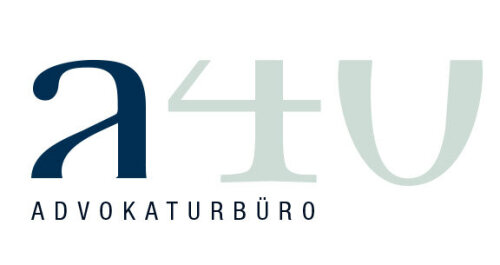Best Conveyancing Lawyers in Bern
Share your needs with us, get contacted by law firms.
Free. Takes 2 min.
Free Guide to Hiring a Real Estate Lawyer
List of the best lawyers in Bern, Switzerland
About Conveyancing Law in Bern, Switzerland
Conveyancing in Bern, Switzerland refers to the legal process involved in the transfer of ownership of real estate property. This process is regulated by both Swiss federal law and specific cantonal regulations unique to Bern. Whether you are buying, selling, or inheriting property, conveyancing ensures that the transaction is carried out legally, all necessary documentation is completed, ownership is properly registered, and all financial aspects are accounted for. The Swiss system, respected for its precision and structure, requires the involvement of professionals, especially notaries and sometimes lawyers, to ensure smooth, lawful transactions.
Why You May Need a Lawyer
In many cases, Swiss law mandates that a notary public handles property conveyancing, but there are several situations where legal representation from a lawyer is recommended or even necessary. These include:
- Complex property sales or purchases, such as properties with multiple owners or unusual rights attached
- Negotiating and drafting unique contractual arrangements
- Resolving disputes between buyers and sellers
- Transferring property due to inheritance or divorce
- Assisting foreigners unfamiliar with Swiss property law
- Ensuring compliance with zoning or planning regulations
- Managing issues regarding property liens, mortgages, or encumbrances
- Verifying the property’s legal status and boundaries
A lawyer can help protect your interests, identify potential legal risks, and explain your rights and obligations throughout the conveyancing process.
Local Laws Overview
Property conveyancing in Bern is governed by the Swiss Civil Code and specific provisions set out in Bern’s cantonal regulations. Key aspects to consider include:
- Role of Notaries: All real estate transactions must be notarized. The notary drafts and authenticates the contract and ensures legal compliance.
- Land Register: The transfer of ownership is only effective once entered in the Bernese Land Registry. This public register keeps a record of all property rights.
- Due Diligence: Buyers must conduct thorough investigations, as Swiss law assumes the principle of caveat emptor (buyer beware).
- Transfer and Registration Fees: Both cantonal and communal taxes and fees apply to real estate transfers. The buyer usually bears these costs unless negotiated otherwise.
- Restrictions for Foreigners: There can be limitations on property purchases by non-residents. The Lex Koller (Federal Act on the Acquisition of Real Estate by Persons Abroad) regulates such transactions.
- Mortgages and Liens: These are recorded in the land register and must be cleared or properly managed before completion.
Compliance with these local laws ensures that property transfers are valid and enforceable, minimizing risks of future legal challenges.
Frequently Asked Questions
What is the typical conveyancing process in Bern?
The standard process involves agreeing on a sale, engaging a notary to draft the contract, verifying property details, signing in front of a notary, paying fees, and registering the transfer in the land register.
Do I need a lawyer, or is a notary enough?
A notary is legally required to authenticate the real estate transaction. However, a lawyer can offer independent legal advice, especially in complicated or contested cases.
How long does it take to transfer property ownership?
Generally, the conveyancing process takes several weeks, depending on documentation, due diligence, and registration timelines. Complex cases may take longer.
What fees and taxes are involved?
Expect notary fees, land registry costs, and property transfer taxes. In Bern, the buyer usually pays these costs, but the allocation can be negotiated.
Can foreigners buy property in Bern?
Foreigners can face restrictions under Swiss law. Non-resident buyers need to ensure they are eligible and may require special permits, especially for non-commercial property.
What due diligence should I perform before purchasing?
It is essential to inspect the property, ensure the seller’s ownership, check for mortgages or liens, review planning, and zoning rules, and verify the land register.
What risks exist if I do not use a lawyer?
Without legal representation, you may miss critical issues like hidden encumbrances, ambiguous contract terms, or non-compliance with local law.
How does inheritance affect property conveyancing?
Inheritance introduces additional legal steps, including confirming heirs and settling estate taxes. Legal advice is highly recommended for smooth transfers.
What happens if there is a dispute during the process?
Disputes can stall the transaction. A lawyer can help negotiate resolutions or represent you in mediation or court.
Is it possible to back out of a property deal?
Once a notarized contract is signed, withdrawing can be difficult and may involve penalties. Consult a lawyer before making any commitments.
Additional Resources
For further help or information on conveyancing in Bern, you can consult the following:
- Kantonalnotariat Bern - the official office overseeing notaries and authentication procedures
- Grundbuch Bern (Land Registry) - for information on registering property and accessing public records
- SAV - Swiss Bar Association, to find qualified lawyers experienced in real estate law
- Federal Office of Justice - resources on Swiss property and inheritance law
- Local residents’ offices (Einwohnerdienste) - for community-specific information on taxes and permits
Next Steps
If you are considering buying, selling, or transferring property in Bern, it is crucial to prepare and protect your interests. Here’s what you can do:
- Gather all relevant property documents, including title deeds, survey reports, and mortgage information
- Contact a notary early to understand the legal steps and required documents
- Consider consulting a lawyer, particularly for complex transactions or if you are unfamiliar with Swiss property law
- Review all contracts thoroughly before signing and ensure you understand all legal and financial commitments
- Stay informed about deadlines for taxes and fees to avoid penalties
- Use official resources and seek professional advice if any issues or disputes arise
Taking these steps will help ensure a smooth and legally secure conveyancing experience in Bern, Switzerland.
Lawzana helps you find the best lawyers and law firms in Bern through a curated and pre-screened list of qualified legal professionals. Our platform offers rankings and detailed profiles of attorneys and law firms, allowing you to compare based on practice areas, including Conveyancing, experience, and client feedback.
Each profile includes a description of the firm's areas of practice, client reviews, team members and partners, year of establishment, spoken languages, office locations, contact information, social media presence, and any published articles or resources. Most firms on our platform speak English and are experienced in both local and international legal matters.
Get a quote from top-rated law firms in Bern, Switzerland — quickly, securely, and without unnecessary hassle.
Disclaimer:
The information provided on this page is for general informational purposes only and does not constitute legal advice. While we strive to ensure the accuracy and relevance of the content, legal information may change over time, and interpretations of the law can vary. You should always consult with a qualified legal professional for advice specific to your situation.
We disclaim all liability for actions taken or not taken based on the content of this page. If you believe any information is incorrect or outdated, please contact us, and we will review and update it where appropriate.
















